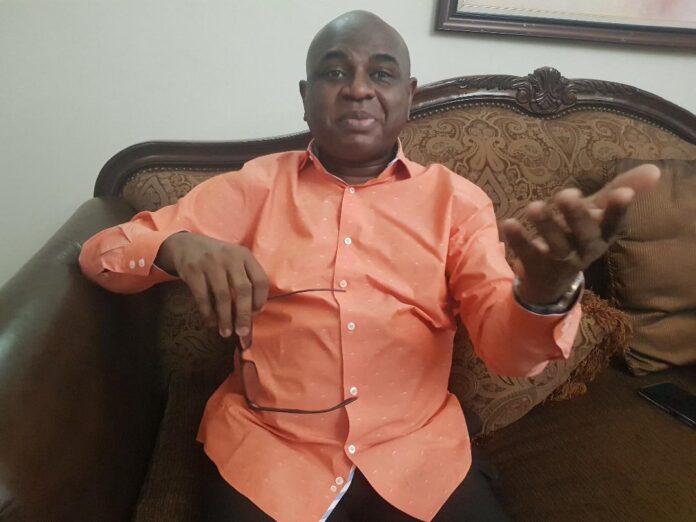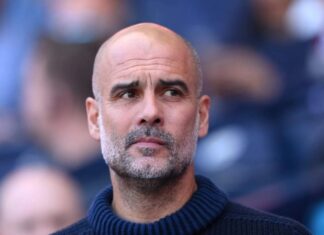Kingsley Moghalu lays out detailed plan of what he will do as President of Nigeria
“I want to be president of Nigeria because I have a vision for our country that I have not yet seen being executed by any of the political leaderships that have failed. I want to be President of Nigeria because I bring a certain level of competence, track record and capacity to address Nigeria’s problems.”
“I want to be president to lead the transformation of Nigeria, working with a dream team, and I want to emphasise this because no one person can do this job, but my competencies will enable me to pull together a team of Nigerians that will lead the transformation of this country across different sectors – the economy, defence, healthcare, agriculture, you name it.”
“I believe that Nigeria needs a new generation of political leaders. Nigeria needs a break from traditional politicians who have grown up in the Nigerian political system and can only think in a certain way. You cannot become left-handed in old age. Anybody who has grown through the Nigerian political system and tells you that if he becomes President in 2023, he is going to be different from anything we have known since 1999, I am sorry, I have the right to say, I doubt it.”
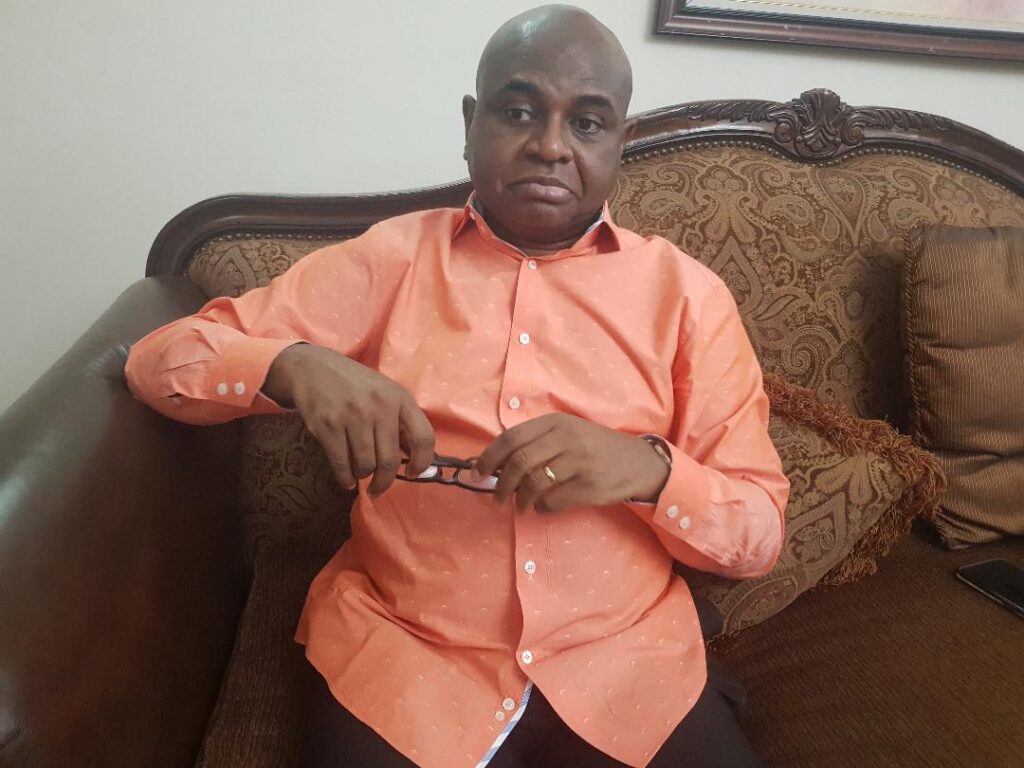
An interview with Professor Kingsley Chiedu Moghalu is like being in a lecture hall. He takes you from foreign policy and diplomacy to economics, from security issues to philosophy. He epitomizes Plato’s idea of a philosopher king in whom political skill is combined with philosophical knowledge.
Rt. Hon. Lord Mark Malloch-Brown, former Minister of State for Africa, Asia and the UN, United Kingdom Foreign Office, once described him as a “savvy Sheriff.”
At 58, Moghalu has been almost everything. A political economist, lawyer, teacher, author, the Ifekaego of Nnewi (traditional title) and former Professor of Practice in International Business and Public Policy at the Fletcher School of Law and Diplomacy at Tufts University, Massachusetts, USA, worked with the United Nations for 17 years, rising from entry level to the highest career rank of Director and later served as Deputy Governor of the Central Bank of Nigeria (CBN) for five years.
Now, he wants to be President of Nigeria.
On Monday, January 17, 2022, Moghalu sat down with IKECHUKWU AMAECHI in his Abuja home to discuss Nigeria and why he wants to be president.
What is your assessment of the state of the nation right now?
The country is in a very, very bad place. Insecurity is rife, the value of human life in Nigeria has become increasingly worthless before our eyes, poverty is rising, unemployment has risen astronomically and corruption is rising.
So, on all the major indices of statecraft, Nigeria is not in a very good place. In fact, Nigeria is at the worst place it has been since the civil war.
That assessment is damning. Are you surprised that we are where we have found ourselves?
I am disappointed but I am also surprised because, though I have not believed that the Nigerian traditional political class is competent, I have not seen any evidence of their competence but now, I also did not see any evidence of this level of incompetence. So, yes, you can say that I am surprised that leadership can fail to such an extent and still think that it should command our respect.
What in your view is responsible for this colossal leadership failure that you have painted?
What went wrong didn’t start with the Muhammadu Buhari presidency. It only got worse in the Muhammadu Buhari presidency, astronomically worse.
What has been wrong is that Nigeria’s politics is not focused on leadership and delivering results. It is focused on tribalism, power grabs by different vested interests, mostly ethnic or religious. This is really what politics has been in Nigeria and it is the fundamental problem.
The country is led by people who are not prepared for modern statecraft in terms of economic management, in terms of international diplomacy, in terms of ability to build a nation, in terms of ability to secure our borders and to secure Nigerians inside the borders of Nigeria.
Another fundamental problem is the minimalisation of intellect and ideas. We have a political system in which ideas don’t matter. Only vested and sectarian interests matter. So, it is a competition of sectarian interest for power without responsibility. That is where things went wrong terribly and we see it with the Buhari Presidency.
Many people before Buhari became president had high expectations of him not because he was a fantastic intellectual, not because he had a great track record in the past but simply because he was effectively packaged and sold to Nigerians as something that clearly he is not. He was presented as somebody who because he was a General in the Nigerian Army would tackle the security problem. It got worse under him.
He was sold as someone who was incorruptible, but corruption is rising astronomically under his leadership and he has failed to stop it.
He is somebody who has governed Nigeria from a predominantly ethnocentric point of view. And that is why the country seems to be breaking apart because even the very notion of Nigerianess is currently being contested. Many people don’t want to associate themselves with Nigeria any more. They would rather associate themselves, first with their ethnicity before they will even associate with Nigeria and in some cases they consider the Nigerian identity an imposition. This is a very, very advanced failure of leadership.
In a recent interview on television, the President said he is doing his best in office. With the litany of woes you have enumerated, are you saying his best is not good enough?
His best is not just not good enough, his best does not even begin to scratch the surface of the problem Nigeria is in. So, I think all he has succeeded in doing is opening the eyes of Nigerians to some degree, not fully yet because you find some people supporting certain kinds of candidacies and you wonder whether we have learnt any lessons. But he has demonstrated to Nigerians that it takes a lot more to be a competent, effective president and unifying president of a country like Nigeria.
Why do you want to be president of Nigeria?
That is a very good question. The fundamental reason is that my heart breaks at the suffering of Nigerians who are living in poverty. Nigeria is in coma and it needs a doctor who cares about the patient to revive it and it needs a doctor who has the capacity to revive it.
So, I want to be president of Nigeria because I have a vision for our country that I have not yet seen being executed by any of the political leaderships that have failed. I want to be President of Nigeria because I bring a certain level of competence, track record and capacity to address Nigeria’s problems.
First of all, let me even step back. I want to be a modern 21st century president for this country. That is what Nigeria needs at this time. We need a break from the past. Nigeria’s leadership now does not need a traditional politician. Nigeria needs a turnaround CEO and that is what I hope to be.
Now I want to tell you the four main functions of a president of Nigeria.
First, national security; second, nation building; third, the economy; and fourth, foreign affairs. It doesn’t go much beyond these four things.
And more than any other aspirant in the field today, I personify preparation in these four areas for the Nigerian presidency.
Let us start with national security. As a United Nations official, I spent many years dealing with ethnic conflicts, the sort that we have a lot in this country today, counter terrorism operations and cross border intelligence. So, as a political affairs officer in the first part of my career in the UN, many people do not know this because they know me more in terms of my role as the Deputy Governor of the Central Bank of Nigeria. And we will come to that but this preparation in terms of conflict resolution, in terms of managing cross-border security threats, such as what we have with Boko Haram today, I have a lot of that experience and it has prepared me.
Second, I served, of course in Cambodia, Croatia and I also handled the Rwanda desk at the UN Headquarters in New York, and during the war in Angola. So, these are all very important preparations.
When it comes to nation building, I have done a lot of work in rebuilding broken nations, afflicted by the kind of problems that afflict Nigeria today – tribalism, ethnicity, religious conflicts. I managed efforts to restore peace and nation building in the former Yugoslavia, Croatia for example, Rwanda, after the genocide, Cambodia after their civil war. Again, this is the kind of preparation you don’t see in Nigerian politics. But this is the preparation that is needed to do the job of being president.
I have managed diverse teams, so managing the diversity of Nigeria is something that will come to me naturally because all my life, I have managed diversity as a leader. In the UN, that is where you have the mother of all diversity, people from 200 countries, different faiths, different races, different religions, and different languages. Leading teams in the UN is a massive training for diversity management.
I managed diversity in the Nigerian context as the Deputy Governor of the Central Bank, which is one of the most important national institutions that we have and I was a leader in the CBN, supervising half of the staff of the bank at one time – over 3,000 staff. The bank had about 6,000 staff at that time and about 3,000 of them were directly under my supervision and these staff members all come from different parts of Nigeria. And so, building institutions is another important part of nation building. Again, I have built institutions starting with the CBN.
Going back again into the United Nations, I played key roles in the reform of the UN. I was a member of the “Redesign Panel,” high level panel appointed by the Secretary General at the request of the UN General Assembly to review the accountability and transparency system of the UN and the labour relations between the staff and management and we submitted a report that led to a massive revamp of that aspect of the UN’s operations, covering the whole staff across the world – over 60,000 people.
And since 2006 when I did this assignment, that system is still in place. So, five members of the panel, I was the youngest by 20 years. The gap between me and the next youngest person on that distinguished panel was 20 years. The chairman was Mary Gaudron, former Justice of the Supreme Court of Australia, Ahmed el-Kosheri, professor of international law from Egypt, former judge ad-hoc at the World Court, the International Court of Justice; Louise Otis, Justice of the Quebec Court of Appeal, Canada; Diego García-Sayán, former Justice and Foreign Affairs Minister of Peru, and then myself. This panel was appointed by Kofi Annan when he was Secretary General as part of the management reform of the UN.
So, when it comes to building institutions, I understand how institutions can be built.
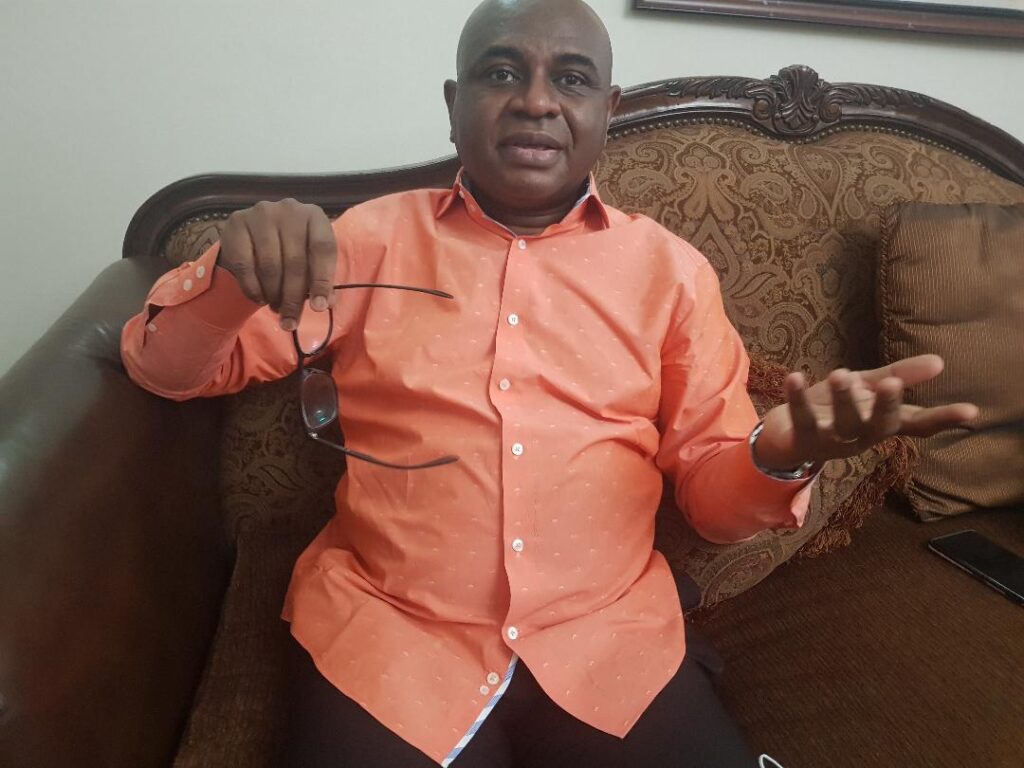
Let us talk about the economy. The economy is, of course one of my greatest areas of strength and it is one of the greatest areas of need for Nigeria today. We need to create wealth. Our politicians are good at politics but they don’t understand economic management. Nigeria needs a president with technocratic competence in economic management and leadership. That is what we need in 2023 especially given the humungous foreign indebtedness to which Nigeria has been put into by this administration, especially given the levels of poverty, especially given the levels of unemployment in this country.
So, the economy should be our number one focus. As Deputy Governor of the Central Bank, I supervised the financial system of N17 trillion in assets which is bigger than the federal budget. No state governor has had that level of economic or financial responsibility. I led the implementation of the reforms of Nigerian banks after the global financial crisis, stabilized these banks, made sure that none of them failed, no depositor lost his or her savings. So, I secured, safeguarded the life savings of Nigerians, very different from what happened in the 1990s when we had the failed bank crisis.
I led the reforms of the payment system. I led the team that developed and introduced the Bank Verification Number (BVN). That is something that every Nigerian can relate to because without it, you cannot do any serious financial transaction in this country. I led its development and introduction into the payment system. We reformed the payment system in such a way that set the stage for fintech companies to come into the economy and begin to grow. Today, the fintech is one of the few sectors in this country that are doing very well and exploding.
I led the development finance function. I was a member of the Economic Management Team representing the Central Bank under President Goodluck Jonathan. I was an independent member of the team. I wasn’t appointed because of any political affiliation. I was representing the Central Bank along with the CBN Governor. So, there were only two of us from the CBN in the team.
I am also an economic thinker. I want you to take note of this. I am an economic thinker. I have written books on economic transformation with ideas about how economies like that of Nigeria and other African countries can actually create prosperity. So, I have done it at the practical level, I have done it at the conceptual level and I have been a professor of international business and economic policy at one of the world’s most prestigious institutions of international affairs – the Fletcher School of Law and Diplomacy at Tufts University in Boston, Massachusetts.
So, when it comes to the economy, my competencies are quite extremely high.
Let us come to foreign affairs, the fourth job of a president. Again, I have a doctorate degree in international relations. I am a specialist in international relations and foreign policy. That is number one. Number two, I spent 17 years as a UN official rising from the entry level to the highest career rank and all my work involved traditional international diplomacy at a multilateral level.
So, this is a very serious package for the Nigerian presidency. And it is the basis on which I stake my claim in addition to just my feeling as a citizen with a heart for the suffering masses because part of the problem is that some people may have competence but they don’t have the heart. They come there, they are wicked, they are insensitive, they are corrupt, and they are there for secret agendas. But I have no hidden agenda.
I want to be president to lead the transformation of Nigeria, working with a dream team, and I want to emphasise this because no one person can do this job, but my competencies will enable me to pull together a team of Nigerians that will lead the transformation of this country across different sectors – the economy, defence, healthcare, agriculture, you name it.
And I want to tell you that even in my mind now, at least a third or half of that team already exist in my mind. The rest we will find when we win the presidency.
In your opinion, what is the single most challenging problem facing Nigeria today that will get your immediate attention when you become president? Is it insecurity, corruption or an economy that has collapsed?
It is an interaction between insecurity and an economy that has collapsed. Both of them feed off each other because one of the reasons for the insecurity is the lack of economic opportunity especially in the North-East and this is one of the reasons behind the Boko Haram insurgency. So, the insecurity and the economy are intertwined. The economy is also collapsing because of the security situation especially in the North. There is no investment going on there and no jobs are being created and agriculture is going down because of the security situation. So, it is the security and economy intertwined, I will say.
I also want to say something when it comes to why I want to be president. I believe that Nigeria needs a new generation of political leaders. Nigeria needs a break from traditional politicians who have grown up in the Nigerian political system and can only think in a certain way. You cannot become left-handed in old age. Anybody who has grown through the Nigerian political system and tells you that if he becomes President in 2023, he is going to be different from anything we have known since 1999, I am sorry, I have the right to say, I doubt it.
So, Nigeria needs something new, different and bold. Nigeria needs a leader who is globally exposed and respected because Nigeria’s place in the world needs to be reestablished and I am very well placed to play that role as well.
If you are elected president, what would you consider your utmost priority? Where will you start from?
Security! If I am elected president today, within 12 to 18 months of my presidency, we will end the terrorism problem in this country. Whether it is terrorism in the form of the so-called banditry, whether it is terrorism in terms of Boko Haram, terrorism in whatever form, we will crush it. We will bring it to an end. We are not going to tolerate the lives of Nigerians being treated as worthless by terrorists. My number one charge as President is to protect the citizens of this country and to protect the territorial integrity of Nigeria and I will deliver on that job 100 per cent.
It is going to be my absolute priority because without it, the economy cannot reach its full potential. And so, security, economy, you know, everything matters. Look at how Nigeria has been broken, divided.
Like I said earlier, the very idea of Nigeria is being contested. It is my business as President to reestablish the idea of Nigeria on the business of equity and justice to all parts of Nigeria and all persons in this country. So, I am not going to be “one Nigeria” for mouth or in the morning and then hidden agenda by night. No! And that is what we have seen so far. The people who talk a lot about one Nigeria do not practice it. But I will practice it as President and by doing so, by being fair to everyone you restore confidence in citizenship of the country. You inspire Nigerians. You need a modern president who can inspire Nigerians to be proud to be Nigerians by setting out a worldview, a vision that we can all aspire to with a common destiny.
That is the point and that is what leadership does. Look at presidents in countries of the world that are making progress and compare that to what we have in Nigeria today where all you have is just politicians struggling for power so that they can corner public resources but they won’t deliver anything.
My priority will be the youths of this country who are 67 per cent of the population but today have no future. And if we don’t solve the problem of unemployment in this country, we are setting the scene for future disaster. If we don’t address issues like uncontrolled population growth, not by force but by education, by educating people, about population issues, so that we can control our population and make it productive, – a large population is useless if that population is unskilled, unproductive and unemployed. So, my business as President and here is where my economic knowledge and experience will come in, how do we turn our population into a driver of productivity and economic development?
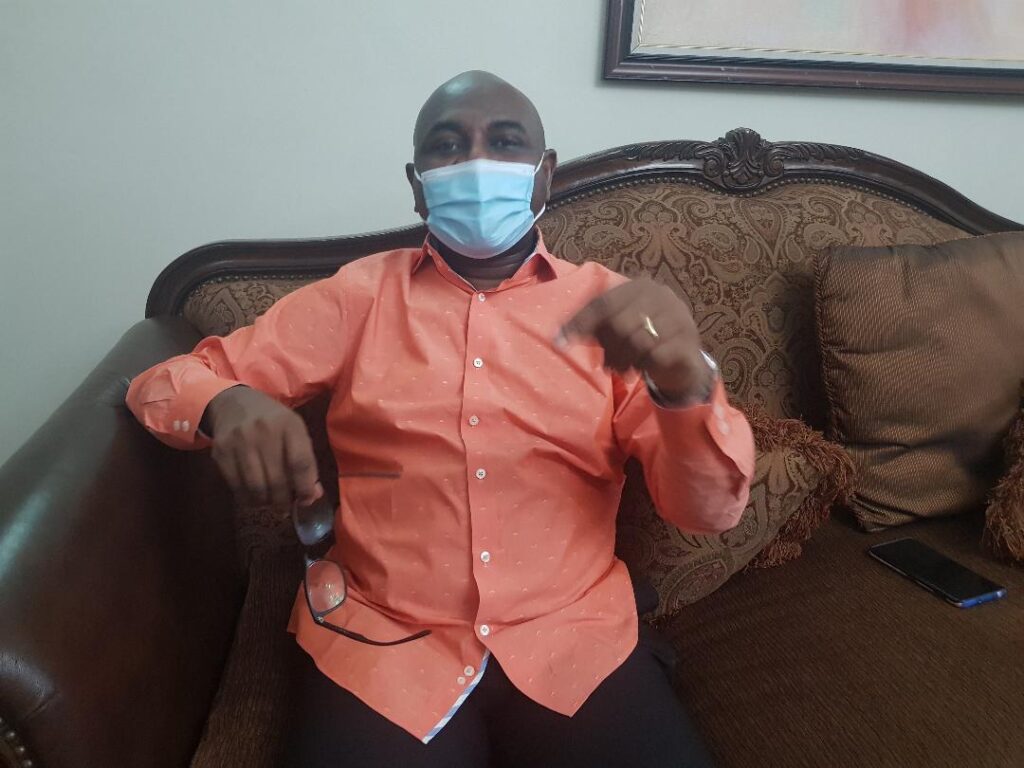
The country’s debt portfolio is ballooning but the government insists that it is sustainable …
That is propaganda. I disagree profoundly and not only that, it is just propaganda. Independent institutions like the World Bank have expressed worries not to talk about several Nigerian business associations that have expressed their worries about the level of debt and sustainability.
Nigeria’s debt to GDP ratio today is at about 36 per cent. Right! Ideally, the advice is that debt to GDP ratio should never cross 40 per cent.
But what we have is not so much that. We have a problem of revenue to debt service ratio. In 2020, 97 per cent of everything Nigeria earned went into servicing its debt. So, we are already in a debt crisis because their projected revenue was N5 trillion but what they got in reality was about N3 trillion. So, there was a shortfall. There is always a shortfall between their projections and what they achieve and so what do they do? They borrow to cover the deficit. That is why, in their borrowing plan, by 2023, Nigeria would have hit a total debt burden of N50 trillion.
This is a time bomb waiting to explode. And so, if you do not have a president whose core competence is economics or economic management, in 2023, this issue will create a massive dislocation in the country because for how long can we continue to borrow just to pay salaries?
So, the kind of economic reform that we need and the political leadership that must be behind it requires economic experience and knowledge in 2023.
So, I disagree with the Minister of Finance, we are in a serious debt crisis and the future of our children and our youths has already been mortgaged and it is going to take someone like myself as President of Nigeria in 2023 to turn around the situation.
Are these things not easier said than done? How would you do that?
The first thing I am going to do is debt moratorium. We are going to stop borrowing when I become President. The second thing is that we must find those revenues inside this country and they exist. They exist because I want to tell you that 30 to probably 40 per cent of the budget of Nigeria is wasted in corruption or actually just inflated provisions and so it goes straight into the pockets of people in corrupt practices. Another 20 to 30 per cent is waste. So, maybe, only 30 to 40 per cent of any annual budget of Nigeria is real. Take note of this. So, if you address this problem, a lot of revenue will be released into the economy.
The second thing is that taxation is going to be transformed. This government is massively increasing taxation but that is not the approach. You don’t have to be increasing taxes on the same people paying these taxes and yet, it is never enough.
So, what do we do? You expand the tax base and reduce taxes. I am actually going to reduce taxes but we will make sure that many more people pay the reduced taxes. That way, we generate a lot more revenue. Today in Nigeria about 70 million people are supposed to be paying taxes but only about 10 to 20 million people do. What happened to the other 50 million people? They are not paying any tax.
Sixty-five per cent of the GDP in Nigeria comes from the informal economy. Many of those people don’t pay anything and then again, you have the cellphone where we have about a 160 million cellphones in a country of about 200 million people. That is a very high level of penetration. That is one way you can always get to anybody. So, if you do an audit based on cellphone ownership, you can find out who is doing what. Who is earning, who can put in a little into the fiscal pot but is not doing so.
And then we have to cut the waste in the public service. The Oronsanye report on parastatals has not been implemented. So, there are so many ways to do that.
Then, there are going to be a lot of new revenue streams that we are going to bring in through the Ports Authority, through the maritime industry, these are all potentials for new and higher revenues that can come into Nigeria through reforms.
So, this is my approach to the debt problem. What we have now is not sustainable.
What do you say to those who insist that an Igbo man cannot be President of Nigeria because he cannot be trusted?
Well, it is because of Nigeria’s history. We need to recognize that the beginning of this problem came from January 15, 1966. The first coup, I think was a big mistake. It was naïve and in that coup, although it was not the intention, but the execution was problematic. I think Nzeogwu was betrayed in the execution of the coup and, therefore, the coup looked one-sided.
Though there have been problems with the Igbos even going back to the 1940s in various parts of this country, because there are many people who resent the Igbo spirit of enterprise and their ability to survive and succeed in vary challenging environments but more recently, the absence of leadership has fed this mistrust amongst the various ethnic groups in this country but especially against Igbos.
So, what I will say is that as a Nigerian, and as an Igbo, I will restore trust among Nigeria’s ethnic groups because I will deal fairly with everyone. I will deal fairly with the Fulani, I will deal fairly with the Yoruba, I will deal fairly with the Igbo, people of the Niger Delta. Equity and justice will be my watchword. Let the kite perch, let the eagle perch. The one that says the other should not perch, its wing could break. This is my approach to leadership. And this is why every team I have led, everywhere in Nigeria and in the world, when I leave, it is never the same, people keep calling me to say, oh, when you were here, when you were the leader, this did not happen, when you were the leader, this will not be happening. You treated people fairly. You were not biased against any ethnic group, against any nationality, against any race.
That is the kind of leadership I will bring. So the distrust of Igbos in Nigeria is deliberate. It has been fed by failed leadership especially in recent years. But it also, to be very honest with ourselves, has roots with the 1966 coup. There is no question about it and the fact that the major political leaders of the North and the West were assassinated and no major Igbo leader was killed.
Even though it was not the planned outcome but we also have to understand how it looks optically. Of course, there were over reactions to those mistakes in the pogrom and so on and then the civil war happened.
So, all these things have fed mistrust and it takes a certain type of transformational and visionary leadership to restore trust. Ironically, I believe that that kind of leadership will best come from somebody who is Igbo but who is broadminded the way I am. So, I think that will help to restore a lot of calm.
But there are some people that believe that the agitation by the Nnamdi Kanu-led Indigenous people of Biafra (IPOB) for a sovereign Igbo nation is not helping matters. Do you agree?
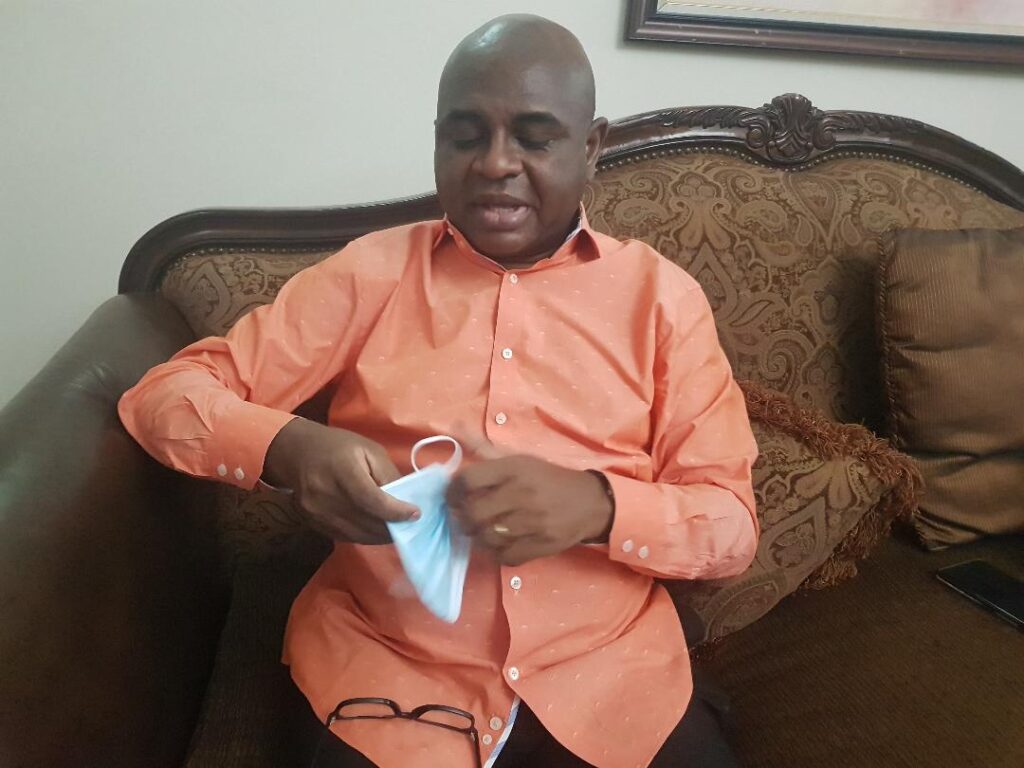
Absolutely. It is very, very unhelpful. It is just an expedition into sentimentalism and I don’t think it will solve anything. Yes, there are issues with equity and justice that Igbos have faced in Nigeria. I understand the basis for the agitation but I don’t think the agitation is being executed in the right manner and I think it has created a lot of distrust as well because many people do not know that most Igbos are committed to Nigeria and prefer to remain part of Nigeria.
The propaganda of IPOB is creating the impression and some people who are biased against Igbos are using that propaganda as an excuse to create a false impression against Igbos at large. So, I don’t agree with IPOB. I don’t believe that Igbos should secede from Nigeria. We should fight peacefully and democratically.
How are the Igbos helping themselves when they don’t participate in elections? They don’t vote and they cry about marginalization. If you are not at the table, why should you be surprised if you are on the menu? We should get our voter cards and vote. There are more than 40 million Igbos in this country and at least 25 to 30 million of them are eligible to vote but most of the time the Igbos are focused on their own business. They don’t understand that without political representation and political power, your business is always facing risks because one policy decision can mess you up. So, they should focus a lot more on politics than they do on business going forward. That is my advice to the Igbos.
You said recently that if you become president, you will work towards reducing the powers of the President. Why would you do that? What is your position on restructuring and what does it mean to you?
Restructuring to me is a very clear thing. It is just a word. What I prefer to use is constitutional reform. We need to return to true federalism through a consensus agreement between the different parts of this country. All the six geo-political zones need to come to a table and discuss the constitutional structure of Nigeria. The most important reason for that restructuring back to fiscal federalism is economic in my view.
READ ALSO: Sam Ohuabunwa: Why Nigeria needs me in 2023
My presidential aspiration accepted across Nigeria – Anyim
Tinubu informs Buhari of his 2023 presidential aspiration
Umahi tells Buhari: I’ll contest 2023 election on APC platform
I was actually talking about why Nigeria’s economy is very weak in the clip that you saw. It is very weak because of the political structure and the political structure focuses a lot on oil rents and receipts. But natural resources never made any country rich. It is economic complexity – value added manufacturing and export that is competitive that makes countries rich and I think that if we change Nigeria’s political structure, to bring power back to the subnational units, rather than concentrating it on 68 items on the Exclusive List for the Federal Government, that is what is holding Nigeria down.
So, that is my view. We need to come back to a situation where we have regions, just six or eight geo-political zones or regions. If people insist on going with the current states, that is okay too but I think the regional approach is ideal because of the economies of scale for manufacturing and trade within different regions. But if you still want to do it with the current state structure, that is fine but let us take power back to the people for the sake of accountability. Abuja is too far for so many Nigerians.
If elected president, can Nigerians count on you to summon the political will to restructure the country considering that President Muhammadu Buhari and APC promised same and never did?
Yes, I will have the political will to lead the negotiations and creating the consensus because constitutional restructuring is the job of the National Assembly. But a president’s influence, the bully pulpit as they call it in America, matters a lot. The reason why Nigeria is not constitutionally restructured today is because President Buhari doesn’t care one jot about restructuring and he has made it very clear. So, if you have a president who believes that this is a good idea, I will manage the process in such a way that anybody who is afraid or worried that he or she will lose out, we will placate those fears and make arrangements that take their fears into consideration. That is leadership and yet achieve progress for everyone including those who are afraid.
In a recent interview too, President Buhari said an emphatic no to state police. What do you say to that?
I believe that state police is necessary. In 2019 when I ran for president, I came out with the most detailed restructuring agenda but Nigerians were too busy looking at the APC and the PDP to take notice. And that is where our problem begins. In 2023, Nigerians should be looking for a leader, not for a party. Unless we do that, we are not going to make progress.
So, state police is very necessary because we are the only federation in the world where the policing function is exclusively controlled by the central government. It is antithetical to the idea of a federation. But I recognize the fears of people who worry that state governors or regions may try to use state police for political purposes that could threaten the viability of the country.
How do you do that? It is just elegant lawyering that will take care of that. There has to be a provision in the constitution for the right of reversion whereby the federal authority can supersede a state police if they begin to misuse state police for the wrong reasons. So, there must be some power that can revert back that power to the federation. That is the way to balance that fear. But in terms of operations, give the states the responsibility to police their communities because those police will know their communities better and be able to secure them. That is just common sense.
So, the fact that President Buhari opposes it is that old-fashioned knee-jerk leadership. It is part of his fundamental opposition to constitutional reform, to federalism.
The military destroyed federalism in Nigeria, starting with Aguiyi Ironsi, going down to Yakubu Gowon and to all the military leaders. So, the military class of 1966 has always been welded to unitary thinking where power is centralized because in the military, command is centralized. The military psyche and psychology does not understand the diffusion and devolution of powers in a federal structure.
And yet, Nigeria did much better economically, I think, when we had a proper federal constitution.
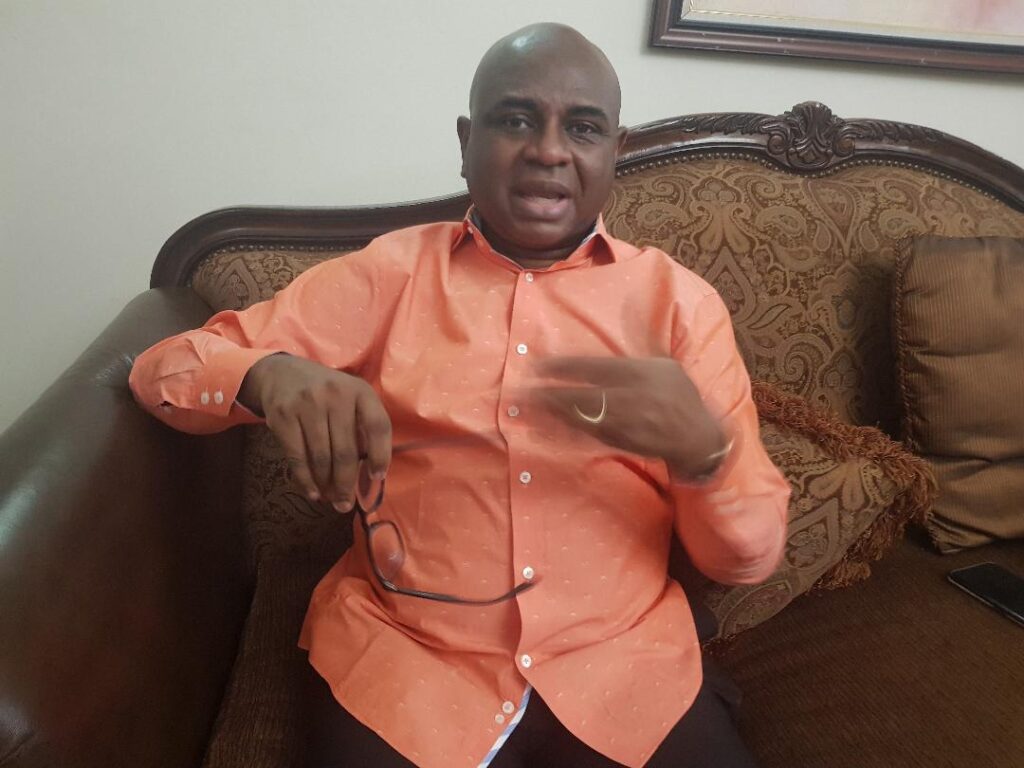
You ran for the presidency in 2019 and failed largely because of the political platform. The issue of political platform matters. How do you intend to go round it this time?
The way we are going to go round it is as follows. There is a negotiation that is going on now between several political parties. And those negotiations include my party, the African Democratic Congress (ADC). We are involved together with other parties.
So, a third force, a new mega party, we expect will be formed within the first quarter of this year. That party will be much bigger and much stronger. So, the idea of small parties will go away and we will then present ourselves to Nigerians as the credible alternative, in fact, the only alternative because the APC and PDP, collectively have failed.
So, in 2023, you will not solve the problem by removing Olisemeka and replacing him with Chukwuemeka because they are the same thing. The APC and the PDP are the same and actually, I recommended that they should be merged and become one party so that we have that two party system that many people ignorantly argue is what should be.
It is not a two-party system in the United Kingdom. There is the Torries, there is the Labour, and there is the Lib Dem (Liberal Democrats). Even in the U.S., it is not just two parties. Two parties, yes, in terms of winning elections but it is not only two parties that exist and people are making the wrong comparisons.
These parties are based on ideology. Here, there is no ideology of the APC or ideology of the PDP. So, why should we be faithful to parties that don’t mean anything other than as vehicles to acquire power? So, the young people will support the third force.
There is going to be a ballot box revolution in Nigeria in 2023. Because the young people are not thinking the way older people are people. They don’t like the APC and the PDP because they have not shown them any promise for their future. And that is where we are going to draw a lot of our support.
Nobody thought that Barack Obama will win election in the U.S. in 2008. First of all, he is a black man. Nobody thought he will win the Democratic nomination against the powerful political family like the Clintons but he won. After that nobody thought he would win the general election because they said he was a black man. He won.
Nobody gave Donald Trump a chance to be president but he won. Why? Because he found his own electorate. We are going to create an electorate that will defeat the APC and the PDP in the presidential election in 2023. You watch what is going to happen. Why will that happen? Because those political parties have created the conditions. They have become so arrogant in their failure and in their corruption that they take the masses for granted. So, the masses are tired of the APC and PDP. Many people do not want them but they cannot yet see the alternative. If they see the alternative, clear and strong new third force formation, many people will gravitate towards it. I can tell you that.
So, that is the path to victory and of course, I will be hoping to emerge as the presidential candidate of an alternative third force platform.
So, I believe that if we can do that, I am very widely accepted in Nigeria. I don’t suffer any prejudices, I can tell you that. Whether in the North, West or in the East, many people can identify with me and they think that I can be handed the presidency of this country with an expectation that I will perform.
So, that is how we are going to address the party platform issue. Each of the smaller parties doesn’t have a big chance to win the election but if many of them come together, they can win because it becomes a bigger platform just like the APC was formed in 2014. The PDP was saying exactly what some people are saying today. By 2012, the PDP was boasting that it would run this country for 60 years. Within three years of that statement, they were out of power. Never become arrogant because you hold power. Political formations can always change and they can change in ways that you would never expect. So, many of these people parroting this conventional wisdom about political platform are in for a surprise because things change. The only thing that is permanent in life is change.
And like the former South African President, Nelson Mandela, said, it is always impossible until it happens.
Mega political alliance like the one you are suggesting takes a lot of time to consolidate. With less than 13 months to the 2023 elections, is it not getting late?
I don’t think it is getting too late. I mean if the third force formation takes place before the end of February, it is not too late. That will be one year to the elections. And we are working on it, we are at an advanced stage. We have interesting announcements to make before the end of February, within the next few weeks.
Could it be the same thing Prof. Pat Utomi was talking about last time?
It is part of it. Utomi is the chairman of the National Consultative Forum, which is a convening platform under which different political parties are negotiating this merger.
What is your worst fear for Nigeria?
My worst fear for Nigeria is that the country breaks down into completely and totally ungoverned spaces. That is to say, absolute state failure. We are already a failing state. In fact, if you look at so many indices, we are already a failed state. But we have not yet failed to the extent that Somalia failed, to the extent that Afghanistan failed because in the Southern part of the country, there is still semblance of normality. But if you go to the North and look at how Boko Haram is intimidating and seizing legitimacy from the Nigerian State, you will be very worried. If you look at bandits and the way they are operating, you will be very worried.
So, what needs to happen to avert this looming Armageddon?
I have ideas about what to do when I become President about how to stop Boko Haram and banditry. It is easily stoppable. The fact that Boko Haram has carried on for 13 years speaks to the failure of political leadership in this country. Why should anybody vote for politicians who cannot protect their lives?
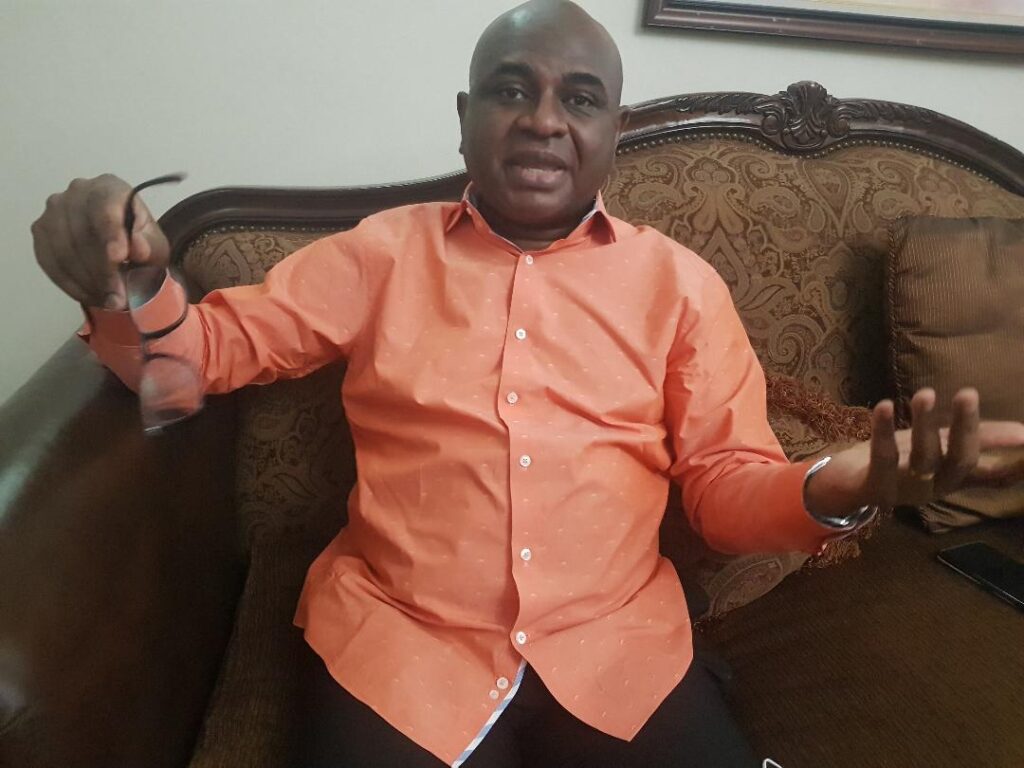
In 2015, Nigerians voted for Buhari, a retired General of the Nigerian army, because they believed he would secure their lives and properties. He failed woefully. If a General could fail, what can a “bloody civilian” like you actually do?
First of all, as we have seen, the hood doesn’t make a monk. The so-called retired General has failed to secure your life and you will be surprised who will be able to do it – the “bloody civilian.” But that will be the “bloody civilian” who understands the complexities of security operations because he has had experience as a civilian in an international organization that has managed security operations in civil wars and in various conflicts.
So, I have the relevant experience and relevant experience for security is not just being in the Army. There are other aspects of security that even matter more. There is the matter of intelligence and it is not exclusively a military affair. There is the matter of the relationship between the citizens and the state, there is the matter of the economy – creating the economic opportunity for young people so that their attentions are not being taken away by religious irredentists and terrorists.
All these things are factors in managing security. There is the aspect of leadership being able to create a national security architecture, but that will be a leadership that is based on expertise and represents Nigeria broadly. It is not based on religious and ethnic loyalties. All these things are aspects of the failure of security in this country. So, as President, I will approach it very differently.
The first thing you have to do in terms of security is that you must go back and reform the Nigerian Police Force. The failure of policing in Nigeria is the root cause of the insecurity in this country. Because the police is weak and inefficient, ineffective and corrupt, they are not able to bring people to account for crimes. When people are not brought to account for crimes, you are creating incentives for escalation in criminal activities.
And this is what is happening. We graduated from armed robbery to terrorism and banditry. So, because the police are not able to secure the internal space, the military has been brought into civilian spaces. And the military itself is not large enough. I don’t know how many people we have in the army, may be two hundred and something thousand people. Nigeria needs an army of at least a million people. We need a police force of at least a million people. So, both the army and the police force are undermined to start with. The Police need to be retrained.
Was it not police brutality and extra-judicial execution of Mohammed Yusuf that started Boko Haram? We need to go back to the police as the first order of business and to carry out deep rooted reform. That is necessary. People need to be specialized. You cannot have someone today manning traffic, tomorrow he is investigating a crime and next tomorrow, he is doing something else. There is no specialization. The leadership of the police is not for politics but it has been made politics in this country. The leadership of the national security apparatus is politics.
President Buhari has not shown any inclination to appoint people other than those from his part of the country and his religious faith in sensitive security positions. So, it is about protecting his regime. It is not about protecting you and I. That is why insecurity has become hydra-headed. I will change that. I will bring back professionalism to national security management. We will escalate the role of intelligence. We will improve the relationship, the trust between the civilian population, the government and the security agencies so that the security agencies can get intelligence.
Above all, I will have the political will to act against terrorists. Until very recently, President Buhari showed no political will to fight terrorism. He was telling us to pray. This is an abdication of his responsibility. Of course we all pray as individuals but you were not elected to be a prayer warrior. You are elected to secure our lives, you must do that job. You cannot transfer it to God because He will not come and do it for you.
So, professionalization of the security forces, with the reform of the police, reform of the military.
We are talking about how to stop banditry and you are talking about Tucano jets. It is not going to stop it. Tucano jets will go in and bomb and go away but you need an army that can go in and occupy those forests. That is the only way. You must flush out the terrorists on the ground.
I also want to tell you that we need foreign help. At the stage Nigeria is now in terms of insecurity, we have to be honest with ourselves, the Nigerian military and security apparatus as it stands today is unable to match the force and the sophistication of the terrorists. That is why terrorists can come into the Nigerian Defence Academy. That is why they can go into the Nigerian Army University and sack the place. It happens almost every day. Very embarrassing things and all you do is to bomb some places. We need a military on the group that can defeat Boko Haram and the bandits on the ground. It is ground work and nor the air war that defeats terrorism. You may use aerial bombardment to create room for a push on the ground. Without that, Tucano jets are not going to secure Nigeria.
Are you confident that the Nigerian electorate will make the right decision in 2023?
What I am confident is that we will do our best to educate the Nigerian electorate to make the right electoral choices. What we have in this country is a situation of slavery and oppression. You know, when Paulo Freire wrote his book, the “Pedagogy of the Oppressed,” he said oppression works insidiously in the minds of people who are oppressed. They justify their oppression and support their oppressors. So, when you want to liberate them, they will be laughing at you.
This is part of how the system of oppression works. And that system has worked beautifully in favour of APC and PDP and with that they have captured the minds of Nigerians and those Nigerians justify them because they have structure. Are you going to eat a structure? Is a structure a job for you? So, we have a lot of education to do.
We must set up our own counter structures which we are already doing. As I am speaking to you, I am setting up structures down to the grassroots in every state of Nigeria. So, I am not just talking. I am working and setting up structures that can deliver electoral outcomes. And then, with those structures, we are undertaking political education at the level of the grassroots.
The elections are 13 months away. There is still time for a lot to happen. One week is a long time in politics, in this country especially.
Many youths seem to have lost hope in Nigeria, hence the mass emigration. What message do you have for them?
When I become president, we will create a country to which they can return because they are my priority. The youths of this country are my priority. We are going to secure their future, we are going to create an environment that gives them opportunities. They are running away because there are no opportunities. When we reform the economy in a very fundamental way, that begins to create opportunities for wealth creation, many young people will return because they are innovative. They have ideas. But we don’t have a government that can create the enabling environment for them. This government is statist. I believe in developmental capitalism. I believe in the market and I will create the right incentives. That is what we need. Economics is the science of incentives. You create incentives, people will respond. It is human nature.
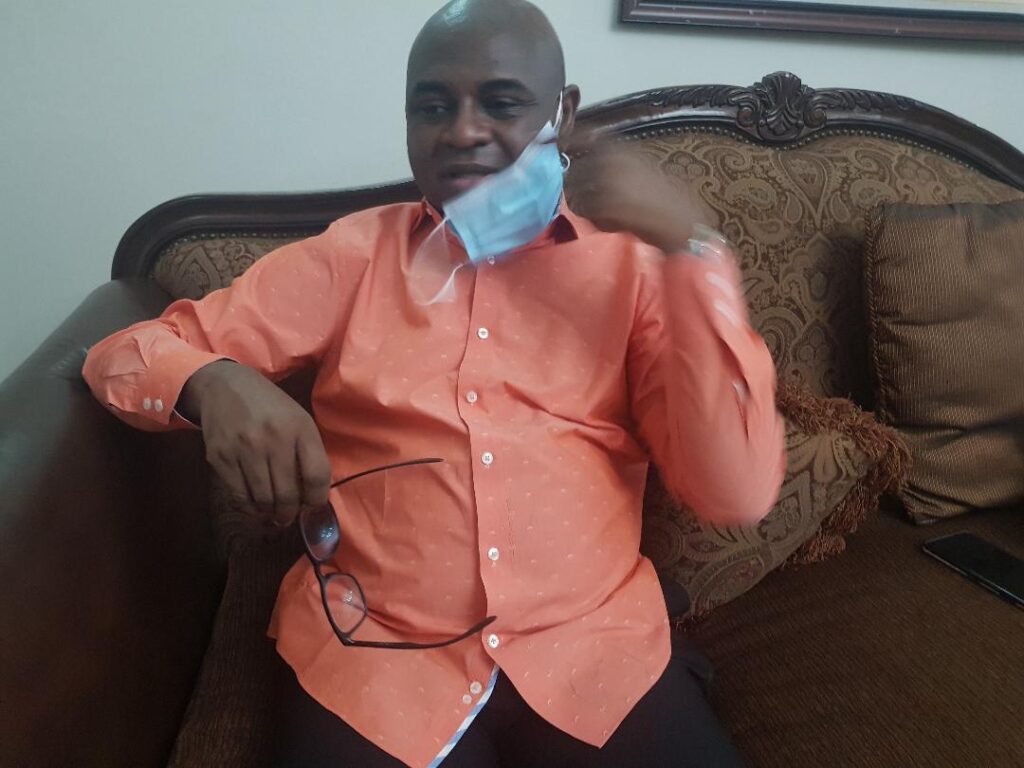
Election requires a lot of money …
Yes
Kingsley Moghalu …
Did not steal money anywhere …
And he is not known to have deep pockets
Yes
So, how are you going to do it?
I have a plan. But I will not reveal it. But I can assure you, we will have the resources to contest and win.


